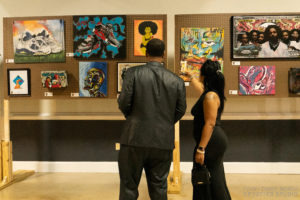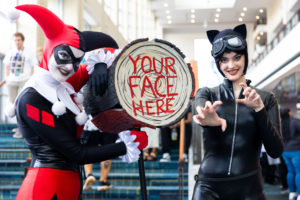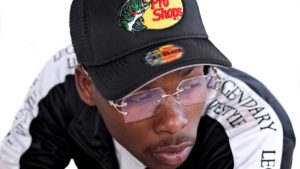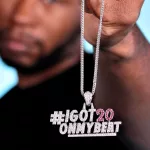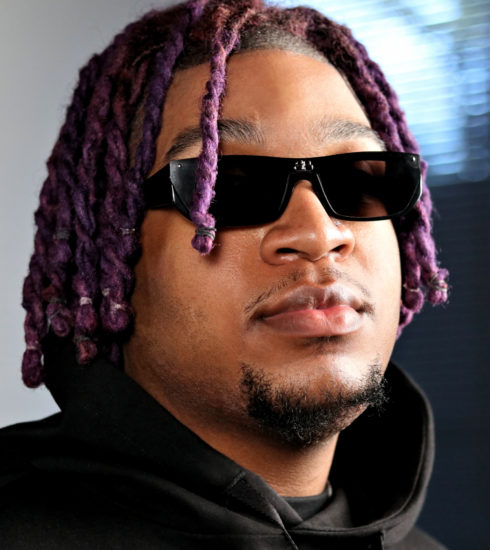How Nachela Knox Shot A Feature Film In Five Days
Meet Nachela Knox, an independent film director whose journey is driven by sheer will and determination. Born in Charlotte, then raised in Cornelius, Nachela’s childhood was shaped by her family’s unwavering support. Guided by a single mother, she found her niche in acting, gracing the stages of both church and school productions. Yet, post-college, a different phase emerged. Armed with a film degree, Nachela found herself in a call center role, far removed from her cinematic aspirations. Her first break was working for G. Davis Productions, which offered her a doorway into theater in Winston-Salem. She eventually ventured off to form a company called GoGetHer Productions and released her first full-length feature (titled ‘Couch Party‘) in July 2023.
When did you first take an interest into the arts?
I have been interested in the arts all my life. As young as I can remember, I have always loved TV and movies. When I was growing up, I used to love watching Raven-Symoné and the the “That’s So Raven Show.” I literally used to recreate commercials. If I saw a commercial, I would go and recreate it and put my own little spin on it. I used to be in church writing out my version of a play in church. It’s literally been something I’ve been into my whole life. I think at first, though, it was definitely more based on acting. I wanted to be an actress so bad. Eventually, I did end up switching to directing.
How would you describe your time at UNC Greensboro?
I think UNCG was a very important part of my life because it helped me discover the person I am now. It was my first time being away from my family, being out on my own. I was able to meet so many people that are still in my life today and have influenced me so much. It was my first introduction to the independent film world. It was also my first introduction to being rejected as far as auditions and things go, which was very important for me because before I went to college, when it came to auditioning for plays and things of that nature, I never really got told no. Even if I didn’t get the part that I wanted, I was always a part of it. It made me feel like, you know, I’m pretty good.
When I went to UNCG my freshman year, I was going in to be a BFA for acting, which is basically the highest level you can do in acting. I worked so hard for that. I’m not the type of person who really likes to audition. I don’t really like to rehearse, should I say. So for me, meeting with my friends and rehearsing and rehearsing and rehearsing, I was like, ain’t no way I’m not going to get this. I didn’t get it, and I was just super let down.
But the good thing about it was I had a teacher. Her name was Denise, and she said to me, she said, you can either join the arena or you can go and make your own. And she said, you know, are you going to stop acting just because you didn’t get into this program? And I’m like, no, I’m not going to stop acting. Like, that’s what I do. That’s what I want to do. And she’s like, then why does the program matter? And then I was like, okay. So I’m actually very thankful for that because I feel like it pushed me into this person I am now to go and create my own opportunities and, you know, continue to make my own arena.
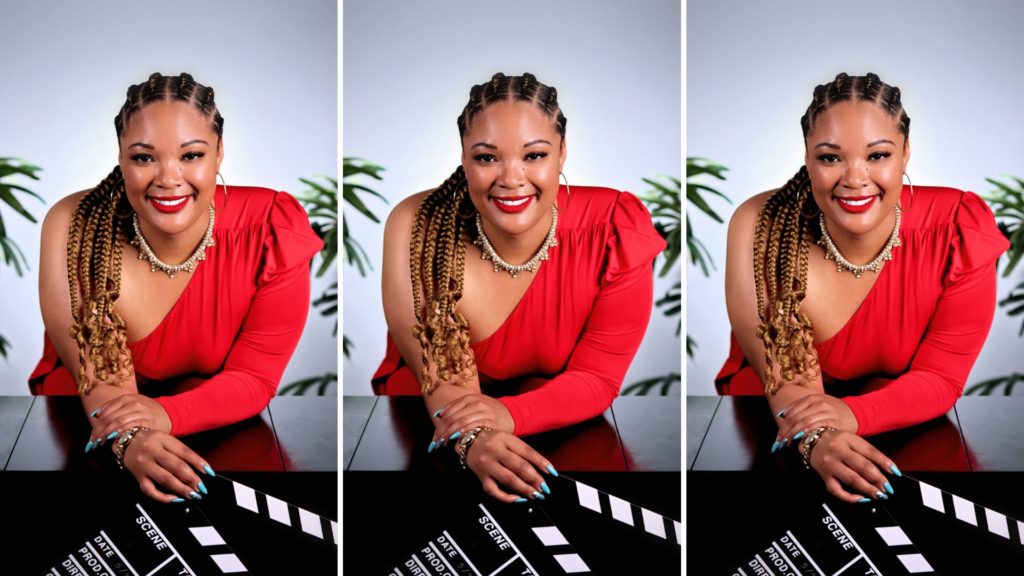
How is being on camera different from stage acting?
To me, being on camera is different because when you’re on camera, to me, it’s more real. Like, when I’m on stage, you have the audience watching you, and that, to me, feeds your performance. So, you know, if I’m doing something funny, I know if I come on stage and I half do it, I’m not going to get that laugh, and I need that laugh to keep going. But when you’re on a film set, even if you’re doing something funny, nobody’s going to laugh because they can’t laugh because the mic is going to pick it up. So, like, you really have to be in the scene. You have to make it real for yourself so you don’t notice the 50 people that are standing around watching you because it’s no longer about them. It’s literally about you and your scene partner and whatever world that you created.
How long did it take to write and develop Couch Party?
So I started writing “Couch Party,” formerly known as “Coma Couch,” in late 2021. It probably took me about six to seven months. However, typically, it only takes me about two to three months, sometimes even faster, to write a feature script if I have a full outline. “Couch Party” is very special because it began as a group project. I was asked to join a writers’ group, and it had always been my idea. I was collaborating with that person, and then suddenly they said, “You know what, never mind, you can have the project. Do what you want.” That kind of discouraged me for a little bit because, at that time, a lot was going on, and I couldn’t understand why I was given these opportunities and then felt like they were taken away from me. But I think the lesson in that was that I was never meant to work in a group. It was always meant to be my project, done the way I envisioned it. The only way I was going to achieve that was by doing it on my own.
Why did you decide to take out a loan to finance it?
So, I had reached a point in my life where I wasn’t working for the production company anymore. I finally realized that money wasn’t going to magically appear. I could pray all I wanted, but $20,000 wasn’t going to fall from the sky. I got to a point where I was so tired of money being the barrier to pursuing my dream. So, I asked myself, “What are you willing to do to follow your dream?” I could try crowdfunding, but that might take three years. I could search for an executive producer, and I did try that. I sent emails, had meetings, and some people seemed interested but then backed out or things didn’t work out. They might have wanted too much control over the film. Eventually, I decided that I don’t care. I’m making this film. I don’t care if I go broke, if I have to work multiple jobs. I’ll take out a loan because if that’s what it takes to get the money, then that’s what I’ll do.

How were you able to film it in 5 days instead of 10-30 days?
I also have a lot of experience as a first assistant director, so I’m proficient in scheduling. When I analyzed my script, I knew it was dense, but we didn’t have too many locations. Most of the film takes place in the house. When we started filming, we had to make adjustments. If we followed the script as is, it would’ve taken more than five days. So, on set, my producer and assistant director were there, and we went through the script, figuring out what we could trim. What scenes could we cut? How could we shorten certain scenes? In film school, they say it’s a minute per page, but that’s not true. I wrote around 120 pages, thinking my film would be an hour and a half, but it turned out to be closer to two and a half hours. We had to cut scenes and lines while ensuring the story still flowed coherently. We condensed it to the core of the narrative. We were mindful that we didn’t have all day for multiple takes, so we aimed for two or three takes and then moved on. We went in with determination and got it done.
How did the film turn out compared to the initial idea?
I believe it turned out better than the initial idea. I think the initial idea was probably bigger than what I could have done with what I had. However, I feel like the way the movie turned out, my strength is that I write really good characters. I think I write very good dialogue. So, while I may not have all the glitz and glam, people fall in love with my characters. You know, they watch this and they’re like, “Oh, Joe was so funny!” I mean, we’ve been doing promo videos with Joe, and some people thought that was the movie or part of the movie. I’m like, “No, it’s just promo.” So, they fall in love with the characters, and I think that was the saving grace. I created these characters in this world that’s just so fun. You just kind of get into it—you just like it. I’ve seen the film like a million times at this point, but I finally got to the place where I’m like, “I’m satisfied. I’m very happy with what I did. I’m very proud of what, you know, myself and my team did.” I think that people are going to see that and they’re going to appreciate it because it is not as typical as your classic indie film or what you may see on Tubi. I think it stands out, but it stands out in a good way.

What ups and downs did you face while finding distribution?
The downside is that there are so many distributors out here who will take advantage of an independent filmmaker or somebody who doesn’t have a lot of experience. They may offer you a deal that’s really not the best deal and they’re taking advantage of people because they know – I feel like especially for minorities – we may not have the education that some of these other filmmakers have, whether they went to film school or they got a rich uncle, whatever it is, we don’t have the education.
So some of us get excited just hearing, “Oh, you’re going to put my movie on Tubi? It’s going to be here?” And we sign anything. And then I know people who have given their films away or, you know, get into these deals where they’re taking these large advances or especially you got a distributor where they know that people need money to finance their films. So they’re putting the money up front so they can continue to make films. But these people are not going to own their films in four or five years and what good is a movie if you’re not going to own it?
So that’s definitely the downside. The plus is I do think there are good distributors who give you a fair deal and, you know, all distributors are going to have something bad about them. It doesn’t really matter who you go with. But you can get a fair deal and you can sign with a distributor who is somewhat reputable and their name is going to help your name as well. Honestly, it really comes down to doing your research. So if you didn’t have the opportunity to go to school, there are so many groups – I mean, there are Facebook groups and Instagram pages dedicated to educating independent filmmakers about distribution. You really just have to go out there and make sure you get the knowledge so you don’t get taken advantage of.
What made Joy and Briella fun characters to bring to life?
Joy and Briella are so fun because they’re opposites. I love opposites in film. I think it plays very well. So when I wrote those characters, that was the point. I wanted Briella to be this shy, awkward girl who doesn’t really do too much. And Joy is literally Joy – like she is the life of the party. She’s loud. She’s kind of all over the place. She doesn’t care. So to see those two together is very comedic. But they form a bond because they’re not like each other. Joy loves how awkward Briella is and Briella loves how big Joy is.
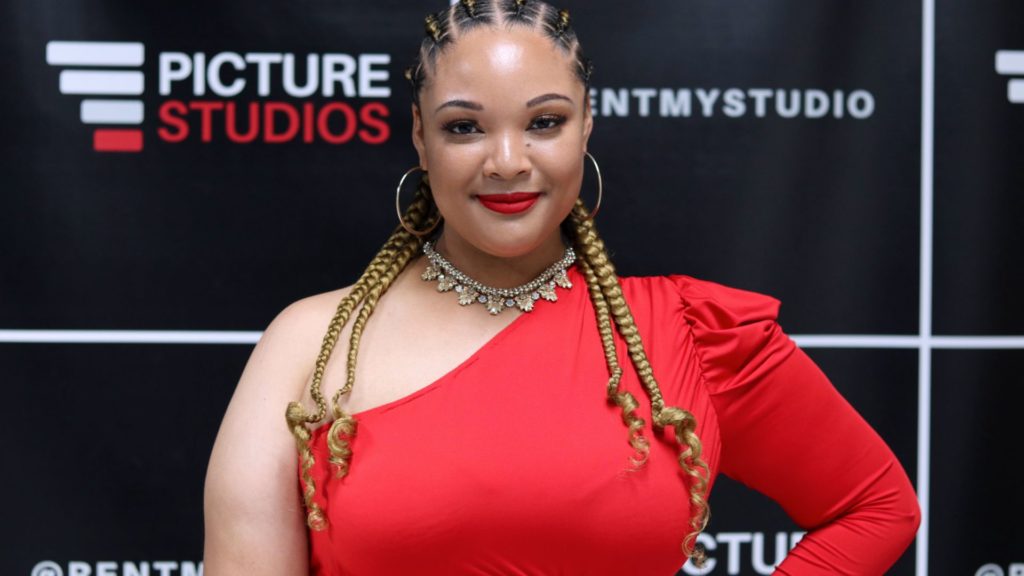
Which cast or crew members exceeded your expectations?
I have to say Jon. Jon plays Joe, but Jon is also one of my producers. This was actually Jon’s first time officially producing. Jon and I are very, very close. We’ve known each other for years. He’s probably one of the few people who I can say really knows me. So it was great to see him come into the role of being a producer. And he really has had my back through this whole process. He’s the person I’m calling. He’s the person I’m getting to. He’s the person I’m like, “I’m going to send them to talk to you.”
Like everybody knows they don’t talk to me, they can talk to John and they can get the same answer. So he did so well in it. And I think he really has a gift for producing because he does so well with communicating to people and really supporting his director. And he also gives very great ideas, you know, creatively and as a character.
Jon normally plays like very street, gangster-type roles but the character Joe is a mess. Like Joe is Joe. Very comedic, very silly. And I remember we were going through it and he was like, “I don’t have this accent like I would do this.” And I was like, “OK,” and it was so silly. It was so silly. And we all were a little nervous because I was like, “I don’t know how this will come off.” But once we got on set, he was super committed and everybody loved it. And it was just like a thing. And I was like, “OK.” And now, you know, that’s everybody’s favorite character. Like every promo we release, everything. All I hear is Joe, Joe, Joe, Joe, Joe, Joe, Joe. Like everybody loves Joe.
What are your thoughts on the current strike situation?
I’m glad that people are standing up for themselves. And I think that these big studios, they’re going to have to start sharing the pot even more. I mean, the cost of things is going up and there are more and more people in the industry. And I feel like some of the proposals they made are ridiculous. I don’t know if you’ve seen the A.I. where they were like, “We’re going to scan background actors and use them for eternity” – like that is ridiculous. So I am glad that they are standing up for themselves.

As someone who’s non-union, the strike is putting a bigger light on these independent filmmakers. I believe that the independent filmmaking industry will one day be as big as Hollywood if things keep going the way they are.
